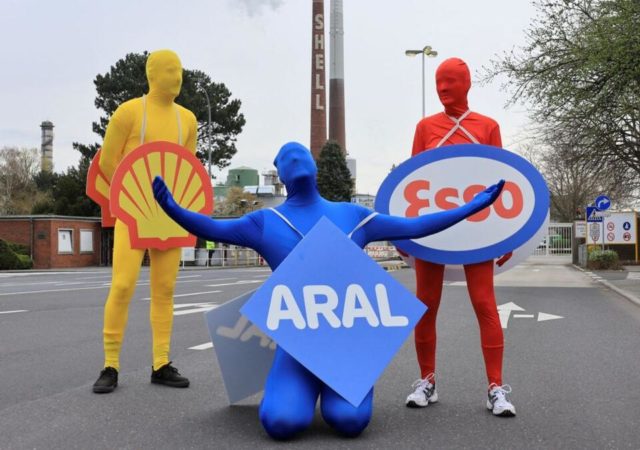Some leading Western policymakers insist now is the moment to speed their countries’ transitions away from fossil fuels.
RISING energy prices and mounting inflation have triggered a crisis of short-termism in some Western capitals. Fears over economic contraction have compelled Germany, Europe’s biggest economy, to toe an awkward line on weaning itself off Russian oil and gas. In a panic over the coming US midterm elections, the Biden administration is prioritising efforts to lower prices at the pump, angering environmental campaigners who fear Biden’s climate commitments are falling to the wayside.
The Russian war in Ukraine has only intensified economic pressures. This past week, the International Monetary Fund revised its global growth forecasts for this year by almost a whole percentage point. “The war adds to the series of supply shocks that have struck the global economy in recent years,” the IMF stated in a report. “Like seismic waves, its effects will propagate far and wide – through commodity markets, trade, and financial linkages.”
More waves are likely to come, with the war’s conclusion far from sight. Some leading Western policymakers insist now is the moment to speed, not slowdown, their countries’ transitions away from fossil fuels.
“We are at a watershed moment from the geopolitical and economic point of view,” Nadia Calviño, Spain’s minister of the economy and first deputy prime minister, told Today’s WorldView.
“We should be prepared for gas and other energy prices to be higher than before the pandemic,” she said during a Friday interview in Washington, where she was chairing a meeting of finance ministers and central bankers who advise the IMF. “There’s a very clear message coming from the current situation: We need to accelerate the deployment of renewable energy. It is the cheapest and cleanest energy source, and it also ensures strategic autonomy.”
That’s rhetoric echoed across the West. The German Greens, now part of the country’s ruling coalition, lashed out at previous governments for not working faster to unmoor Germany’s economy from Russian fossil fuels. “Energy policy is always power policy, is always interest policy, is therefore always security policy,” Robert Habeck, Germany’s economy and climate minister, said at the end of last month. “And if you look back, you almost can’t understand how we could be so blind to overlook that.”
Of course, the business of this transition is one of the most complex and vexing matters of 21st century geopolitics. Even as the United States and European countries slowly move to decarbonise their economies, they are driving billions of dollars in new, near-term investment in fossil fuels. After it placed an import ban on Russian oil, the Biden administration has been desperately trying to coax countries like Venezuela and Saudi Arabia to pump more oil into the market to offset the difference and mitigate price hikes.
“We don’t really have a choice,” said Calviño, pointing to the scale of the climate crisis. “We have to accelerate the green transition, but it is important that it’s a fair transition.”
Spain is arguably ahead of the curve. The current center-left government has set a target of getting two-thirds of the country’s electricity from renewable sources by 2026. It negotiated a pact with trade unions and energy companies to essentially retire the country’s entire coal industry, a process made “just” by massive amounts of new government investment in mining communities and in the creation of alternate jobs.
In a landmark initiative, Spain’s government now will deploy billions of dollars in funding from the European Union’s coronavirus recovery fund to boost its renewables sector, flood the country with new electric vehicles and charging stations, and rehabilitate Spain’s buildings to make them more energy efficient, among other things.
Efforts like this, of course, do little to offset more immediate pressures. As the war in Ukraine drags on, European officials are urging ordinary citizens to change their daily habits to reduce their societies’ dependence on the Russian energy supply. The European Commission advised its citizens last week to work from home and take other “simple steps” that could “help Ukraine by cutting the E.U.’s reliance on Russian fuel, and also . . . reduce greenhouse gas emission.”
By some estimates, the EU still spends $450 million a day to Russia for oil and $400 million per day for natural gas. Public horror at Russian actions in Ukraine may chip away at that figure.
Maria Pastukhova, a Berlin-based senior policy adviser at the independent climate change think tank E3G, told my colleagues that the EU guidance could “really work now because citizens across Europe are appalled [over] what’s happening in Ukraine and want to do something, but this is a crisis situation.” Ultimately, though, it’s about governance. Even if many Europeans adhered to the recommendations, Pastukhova said, they “wouldn’t hold for long without clear policies and are not sustainable.”
– THE WASHINGTON POST








